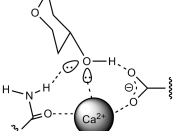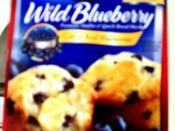Carbohydrates really aren't that bad. Just choose them wisely. Not so long ago, bagels reigned. And people thought they were the perfect fat-free food. But now, bagel is practically a dirty word. They're empty calories, the thinking goes, forbidden carbohydrates.
So why the change? Because the aversion to fat has been replaced by an aversion to carbohydrates. Hence, bacon and eggs are back on the breakfast plate. This is, of course, driven by the popularity of the high-protein diets. I can't delve into the science behind carbohydrates and metabolism in this small space. But here are a few facts:
There are two types of carbohydrates, simple and complex. Sugar is a simple carb; rice, potatoes, pasta, breads, fruits, and vegetables provide complex carbs.
When dietitians like me recommend eating more carbs, we mean the complex ones, specifically those that are high in fiber -- such as whole grains, leafy greens, and fruits.
While it is a simple carb, sugar is not evil and has never been proven to be the underlying cause of disease (although it's an important consideration for circumstances such as diabetes).
It's not so much the type of carbohydrate you eat as the company it keeps. The simple carbs found in cakes, ice cream, candy, cookies, muffins, and doughnuts generally cavort with fat. On the other hand, complex carbs are generally accompanied by fiber, phytochemicals, vitamins, and minerals.
Here's the upshot: A plate of pasta with tomato sauce is infinitely healthier for you than a T-bone steak. The pasta and sauce come to you without the saturated fat and cholesterol of the steak -- and with a dose of lycopene to boot. And in the context of a well-balanced diet, a bagel is healthier for you than a plate of bacon and eggs.


